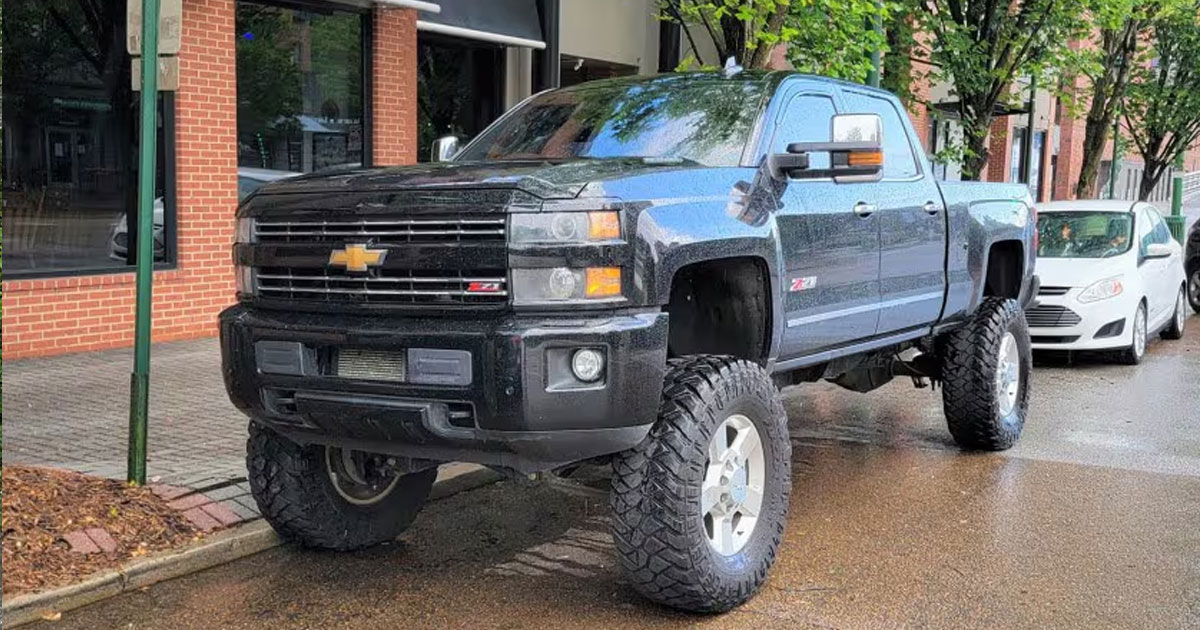Mechanics Warn: New Trucks That Drain Your Wallet

Despite their high price tags, Americans still gravitate toward SUVs and trucks. According to Kelley Blue Book, SUVs outsold cars last year, and trucks continue to dominate the best-seller lists. Ford Motor’s F-Series trucks have led the industry for 42 years, with Chevrolet Silverado and Ram pickups not far behind. But even with their popularity and utility, not all trucks are created equal. Some can end up costing you a fortune in repairs and maintenance over time.
The Real Cost of Ownership
To help you navigate the truck market, we turned to Chris Pyle, a verified auto expert from Just Answer, who shared his insights based on decades of diagnosing and repairing vehicles. Pyle’s advice is invaluable for anyone looking to avoid the most expensive mistakes on the road.
1. 2003-2005 Ford Super Duty
Ford’s 6.0 diesel engine in the 2003-2005 Super Duty trucks aimed to meet upcoming emissions standards. However, Ford rushed its development, leading to numerous issues. Pyle explains that making diesels run clean was a significant challenge, resulting in expensive repairs. Owners of these models frequently faced costly engine overhauls and replacements.
2. 2006-2013 Ram
Ram trucks from 2006 to 2013 are notorious for high maintenance costs. According to CarEdge’s “Most Expensive Cars to Maintain” rankings, Ram vehicles are the priciest popular brand to maintain, with repair costs $5,000 higher on average over the first decade of ownership. Pyle highlights persistent steering and suspension issues, often referred to as the “death wobble,” requiring multiple repairs to ensure safety and dependability.
3. 2005-2010 Nissan Frontier
Nissan Frontiers from 2005 to 2010 suffer from frequent transmission and engine failures. Pyle points out that the transmission cooler, located inside the radiator, fails and allows coolant to mix with transmission fluid. This leads to rapid clutch plate deterioration, resulting in costly transmission overhauls or replacements.
4. 2008-2010 Ford F-250 and F-350
The 2008-2010 Ford F-250 and F-350 models also made the list due to their problematic 6.4L Power Stroke diesel engines. These engines are prone to fuel system failures and oil dilution issues, leading to expensive repairs. Pyle warns that owning one of these trucks means being prepared for significant maintenance costs.
5. 2005-2008 Chevrolet Colorado and GMC Canyon
Chevrolet Colorado and GMC Canyon trucks from 2005 to 2008 often experience transmission problems and electrical issues. Pyle notes that these models frequently require transmission rebuilds and repairs to electrical components, which can add up quickly over the years.
6. 2003-2006 Chevrolet Silverado 1500
The 2003-2006 Chevrolet Silverado 1500 is another truck that can drain your wallet. These models are known for their faulty fuel pumps and problematic rear disc brakes. Pyle advises potential buyers to steer clear of these years to avoid the headache and expense of constant repairs.
7. 2004-2007 Ford Explorer Sport Trac
Ford’s 2004-2007 Explorer Sport Trac trucks face significant transmission and engine issues. Pyle explains that these trucks often require transmission replacements and engine repairs, making them a costly choice for long-term ownership.
8. 2000-2006 Toyota Tundra
Even the reliable Toyota brand has its duds. The 2000-2006 Toyota Tundra models suffer from severe frame rust issues. Pyle mentions that the rust can compromise the structural integrity of the truck, leading to expensive frame replacements or repairs.
Understanding Truck Reliability
Reliability can be challenging to assess without expert insight or thorough research. While some truck brands are known for their consistency and quality, even they can produce models that are best avoided. Conversely, less reputable brands might have surprisingly dependable vehicles in their lineup.
Why Trucks Are Expensive to Maintain
Trucks, by their very nature, are built for heavy-duty tasks and rugged use. This means they come with more complex and robust components that can be costly to repair or replace. Additionally, their larger size and weight contribute to higher wear and tear on parts like brakes and suspension systems. As a result, maintenance and repair costs for trucks can quickly add up over time.
Expert Tips for Truck Buyers
For those in the market for a new truck, Pyle offers some valuable advice:
- Research Thoroughly: Before purchasing a truck, research its reliability and common issues. Look for reviews and ratings from trusted sources and consult experts if possible.
- Consider Maintenance Costs: Factor in the potential maintenance and repair costs when budgeting for a new truck. A lower upfront cost can sometimes lead to higher expenses down the road.
- Regular Maintenance: Stay on top of regular maintenance to prevent small issues from becoming major problems. Regular oil changes, brake inspections, and other routine services can extend the life of your truck.
- Warranty and Extended Coverage: Consider purchasing a truck with a good warranty or investing in extended coverage. This can provide peace of mind and protect you from unexpected repair costs.
The Importance of Reliable Trucks
Reliable trucks are essential for many American families and businesses. They serve as versatile vehicles capable of handling work tasks, family transportation, and recreational activities. Choosing a reliable truck can make a significant difference in terms of cost, safety, and overall satisfaction.
Final Thoughts
While trucks remain a popular choice among American drivers, not all models are created equal. Some trucks can end up costing you a fortune in repairs and maintenance over time. By consulting experts like Chris Pyle and conducting thorough research, you can avoid the most expensive mistakes and choose a truck that will serve you well for years to come.
Remember, the most reliable trucks are those that combine quality construction, proven performance, and manageable maintenance costs. Whether you’re in the market for a new truck or looking to maintain your current one, staying informed and proactive can save you time, money, and frustration in the long run.

